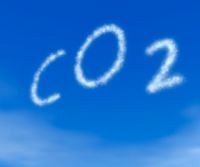

The EU has agreed on binding targets to cut greenhouse gas emissions and to boost the use of renewable energy. Under the new targets, the EU would have to cut their greenhouse gas emissions by 40% by 2030, in comparison with 1990 levels. In addition, renewable energy should account for 27% of the total energy mix.
Whilst these targets signal a true intent from the EU to be global leaders in the fight against climate change, they have come under attack for various reasons.
Some environmental groups have welcomed the targets but have claimed that they don't go far enough. In addition, some countries such as Poland, which relies heavily on coal, are worried about the impact decarbonisation may have on their economies and growth, although European Council President, Herman Van Rompuy, did say that the poorest EU members would get help such as additional funds in order to reach these targets. Meanwhile, Joris den Blanken, of Greenpeace, said the offerings were modest and that it "will mean a slowdown in clean energy development in Europe."
However, several other EU members have reacted positively to the deal. The UK however opposes binding targets for renewable energy use, but at the same time is looking to increase its reliance on shale gas and nuclear power as an alternative to carbon intensive energy production such as oil and gas.
The current target of a 20% reduction in greenhouse gas emissions by 2020, compared with 1990 levels, seems to be on target. And whilst some have criticised the EU for a lack of ambition in the latest set of targets, it is still a significant step towards tackling climate change.
Mr Van Rompuy said, "It was not easy, not at all, but we managed to reach a fair decision that sets the EU on an ambitious but cost-effective climate path." Jose Manuel Barroso, the President of the European Commission, added, "This package is very good news for our fight against climate change. No player in the world is as ambitious as the EU."